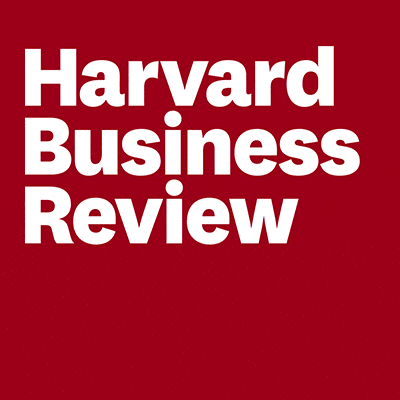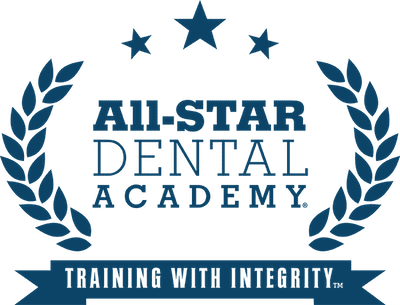
Even though we are facing new challenges with the Delta Variant, a return to normal will happen soon. The Covid-19 crisis has left no area of our lives, be it work or personal life, unaffected. We were all forced to change the way we did things. Some of us were able to adapt quickly and manage things more effectively, while others found themselves lagging behind.
Now that the situation is generally improving, the common expectation is that things should go back to pre-pandemic normal. A recent article in the Harvard Business Review gave me some insights on the subject matter that I think apply to dentistry.
A Return to Normal?
The idea of the restoration of how we used to go through each day may seem enticing to those who couldn’t/can’t cope well with the crisis. But a return to pre-pandemic habits and solutions to challenges can be problematic. It can seem like a downgrade to those who were able to creatively find their way around unprecedented problems created by the crisis.
According to the data collected from a poll of 850 CEOs across 35 countries, the Covid-19 crisis has led to some important realizations for executives about the potential of their employees and the power of making inter-organizational power structures more flexible. As I read the article, I found some important lessons that can serve as a guiding light for dentists who are struggling with business development and other management responsibilities on top of their clinical duties.
Lesson # 1: Disrupting the hierarchy in favor of efficiency
The hierarchical system in a dental practice is almost always much simpler than it is in a multinational organization. However, people being people, the underlying power dynamics are similar.
No matter the size of an organization, there are some rules that define who Is answerable to whom and how different processes should be carried out within an organization. Although these rules are often established to regulate systems, they can sometimes limit efficiency and curb the creativity of the employees.
The Covid situation led many organizations to be more open to the suggestions of their employees regarding ways to deal with the crisis. Moreover, often the employees who came up with useful ideas were also given the authority to execute them as they see fit.
Read more about how “engaged” employees benefit your bottom line.
What about the Positives?
Although these measures arose from the crisis, the post-pandemic point of reflection is: Should we turn a blind eye to the benefits brought about by taking these measures and insist on restoring the power structure or should we focus on what’s ultimately good for the organization even if it means breaking old patterns? My vote is for the second option.
If you are a dentist who takes on business development and marketing on top of your clinical duties, the overwhelm brought on by Covid could have served as a wakeup call for you. Before you move to bring things back to normal, look back at the last year. What worked? What didn’t work? Who among your team stepped up to take on new responsibilities?
Perhaps you empowered your marketing team to go with what they thought was best or perhaps you allowed your front office team to take the lead in some situations. Consider the results of everything that happened differently within your practice. Can you delay a return to the previous status quo? Or perhaps some of the experiments from Covid proved successful and you’d like to keep the experiment going. As All-Star’s Head Instructor Larry Guzzardo like to preach, the most successful dentist is the one who delegates as much as possible.
Lesson # 2: Celebrate the ideas that worked and use them to level-up
There’s another step you should take. Analyze all the things that were done differently during the crisis. Then celebrate those ideas that proved fruitful and explore them to see if they have further utility. If there are any ideas that you think can be carried forward to the post-pandemic practice, then they definitely should be. There is no reason to hold back. Use those ideas to “level up.” You never know, perhaps some of those ideas can continue to make your life easier.
One thing that can deter people off from trying out new ideas is that they want to be absolutely sure of the long-term success of the idea before they even execute it. This resistance to change can keep us stuck in the same place and let the opportunities for growth pass us by.
Good Enough vs Perfect
Here’s another important lesson that Covid-19 has taught us. It’s more important to keep moving with what seems “good enough” than to stay stuck waiting for something “perfect.” Growth is only possible if we are willing to learn by doing. I know that this idea sound scary due to the degree of uncertainty. Working with uncertainty demands some courage and, occasionally, a leap of faith. Most people feel safer knowing what lies ahead even if it means stagnation.
The good news is that the fear that comes with implementing new ideas can be managed. Monitor that implementation carefully. Put in place a system of results-based accountability. Giving a certain degree of autonomy and freedom to an employee and creating space for a new idea does not exempt that person or that idea from accountability. The key to maintaining balance is allowing flexibility when it comes to implementing new processes while keeping a check on the results of those processes.
Maintaining such a balance will not only open new avenues for growth but will also make your employers and team members feel more appreciated. And appreciation can go a long way in increasing job satisfaction. Those higher in the chain of command must realize that allowing autonomy to others is not a threat to authority.
Celebrate the Successes!
Moreover, the more you appreciate those who were able to step up and help in times of adversity, the more benefits you will earn. Your other employers and team members will be encouraged to follow the lead. No matter what field of work you belong to, openness to new experiences and being comfortable with change are the two things that play a key role in promoting growth.
Join us for a free training webinar and learn about three critical systems
where underperformance can break your practice.








